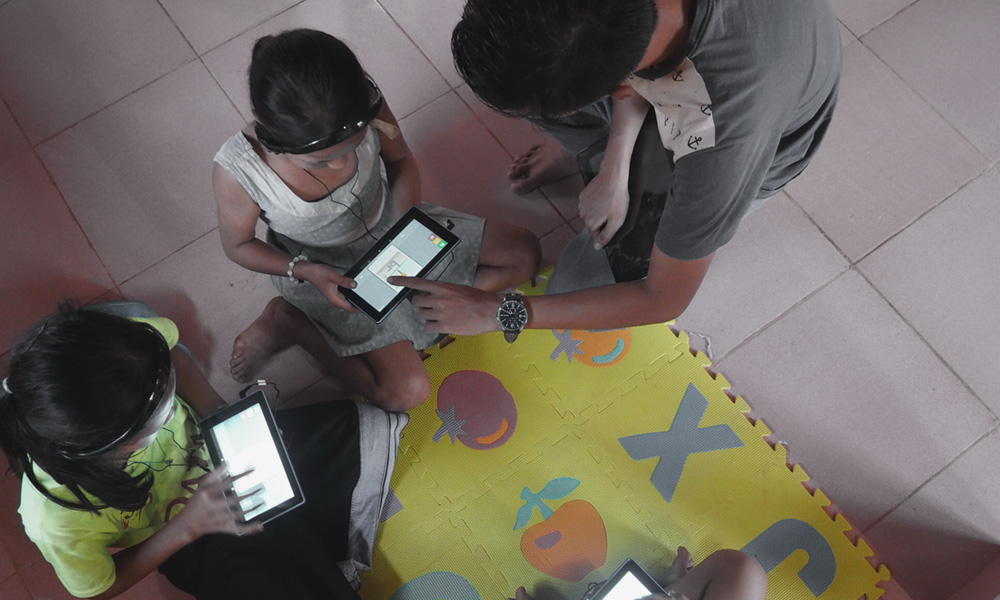
Image Credits: Wikipedia
India Did Well In Transition To Digital Learning: Oxford Report
Writer: Palak Agrawal
Palak a journalism graduate believes in simplifying the complicated and writing about the extraordinary lives of ordinary people. She calls herself a " hodophile" or in layman words- a person who loves to travel.
India, 9 April 2021 4:32 AM GMT
Editor : Prateek Gautam |
A free soul who believes that journalism, apart from politics, should stand for social cause and the environment.
Creatives : Vijay S Hegde
I am a creative, artistic and ambitious designer, with a talent for thinking outside the box and coming up with innovative ideas and designs. I graduated with a 1st Class honors degree in Video Editing from MAYA ACADEMY OF ADVANCED CINEMATICS
"In India, compared to other countries, respondents felt that the transition to online learning was done rather well, scoring 3.3/5. However, a major issue identified by respondents was unequal access to digital learning devices, as well as a lack of internet connectivity and little familiarity around the tools required to facilitate online learning," said the report.
India transitioned well to online learning during the COVID-induced lockdown despite several challenges like internet connectivity and lack of digital learning devices, according to a new report from Oxford University Press (OUP).
The report titled "Education: The Journey Towards a Digital Revolution" stated that the pandemic had been instrumental in introducing a hybrid education model, one that combines digital and traditional methods.
The report analysed the way teachers, students and parents have adapted to new ways of delivering education and will continue to make use of them to shape the learning and teaching practices in the coming years. The report pointed out that the governments needed to act accordingly to ensure that the progress that had been made from the past year was not lost, reported NDTV.
"In India, compared to other countries, respondents felt that the transition to online learning was done rather well, scoring 3.3/5. However, a major issue identified by respondents was unequal access to digital learning devices, as well as a lack of internet connectivity and little familiarity around the tools required to facilitate online learning," the report said.
About 71 per cent of respondents in India felt that the switch to online medium has been detrimental to wellbeing. The government should prioritise more funding as well as addressing connectivity issues, especially in rural areas.
Socio-economic barriers, lack of professional development opportunities for teachers, and disruption or uncertainty in day-to-day life caused by the pandemic emerged as the top three issues having a negative impact on digital learning.
The respondents suggested the focus should be on improving connectivity, increasing funding on technology and ensuring holistic professional development opportunities for teachers.
The report was prepared after taking into consideration data points from countries such as India, the United Kingdom, Brazil, South Africa, Pakistan, Spain and Turkey. It also included inputs from hundreds of teachers globally and extensive research.
"As we start to reimagine what education may look like in the future, it is imperative that the governments learn from those who have been on the frontline, delivering and receiving learning. We have a huge opportunity to learn from all our experience to develop education systems that will work for both local and global society," said OUP CEO Nigel Portwood.
Tackling The Challenges
As per a recent study, about 64 per cent of the children in rural India fear they might have to drop out of school if not provided with additional support to make up for the learning gaps in their curriculum.
'Perception, Fears and Readiness for Reopening of Schools', the study, was conducted by Delhi-based NGO ChildFund India across 20 backward districts in 10 states.
Also Read: Study Identifies Gender Bias In Patients' Pain: Females In Pain 'Not Taken Seriously' As Males
 All section
All section














